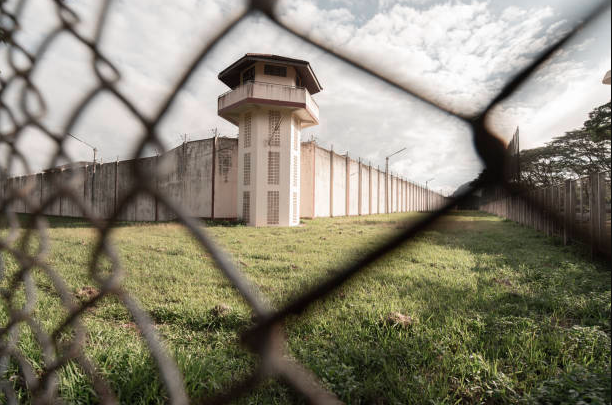This week, a case in North Carolina is being heard in court that could have far-reaching implications for all capital punishment cases in the state.
Hasson Bacote, 37, was found guilty of felony first-degree murder in Johnson County in 2009 and given the death penalty.
The attorneys from the American Civil Liberties Union representing Bacote are appealing his sentencing under the state’s Racial Justice Act, contending that racial discrimination was a crucial factor in his trial.
This is the first case to be heard under the legislation since it was repealed in 2013 by former Republican Governor Pat McCrory, who argued that it “created a judicial loophole to avoid the death penalty and not a path to justice”.
In 2009, the law was enacted, allowing death row inmates the opportunity to be resentenced to life in prison by demonstrating that race played a role in their original sentencing. Mr Bacote submitted his claim in 2010.
Only four cases managed to succeed before the law was repealed. However, in 2020, the state Supreme Court decided that existing cases must still be heard, but no new appeals could be accepted.
There are currently 120 other appeals pending under the previous legislation. This is the initial case to be considered following the state Supreme Court ruling and may establish a standard for the handling of all other ongoing cases.
North Carolina currently has 136 individuals on death row. Henderson Hill, Bacote’s attorney, mentioned that the defense plans to present evidence from 680,000 pages of notes from every state capital trial between 1980 and 2010.
The evidence is intended to demonstrate a historical pattern of racial discrimination, particularly in Johnson County, where Bacote shot 18-year-old Anthony Surles during a robbery in 2007.
Some of the evidence that will be presented at the hearing includes prosecutor notes mentioning the skin color of potential Black jurors or their physical appearance.
According to the ACLU, a potential juror was labeled as a “thug” in one instance. One aspect of the organization’s defense argument relies on a study conducted by Michigan State University in 2011.
The study revealed a consistent pattern of Black jurors being removed from capital punishment trials at a higher rate than white jurors across the state.
During Bacote’s case, the prosecutor excluded Black jurors at a significantly higher rate compared to non-Black individuals in four trials, as reported by the Death Penalty Information Center.
North Carolina Attorney General Josh Stein tried to postpone Bacote’s hearing, stating in court documents that the state Supreme Court found the study to be “unreliable and fatally flawed.”
He emphasized that racial discrimination cannot be assumed solely on the defendant’s claim; it must be proven.
According to the ACLU, felony first-degree murder is seldom a reason for capital punishment in any part of the country, which influenced Bacote’s sentencing.
“There was no indication that the killing was premeditated or intentional,” Mr. Hill observed.
North Carolina Execution Delays Linked to Legal Issues

North Carolina has not executed a death row inmate since 2006. There have been delays in the cases due to legal issues surrounding lethal injection drugs and other policy concerns.
The Racial Justice Act appeals also prevent the current governor from scheduling executions.
If the court rules in favor of Bacote, it is probable that comparable evidence would be presented in the remaining 120 cases.
This could potentially lead to all the prisoners who had previously submitted claims being resentenced to life in prison.
According to Mr. Hill, certain evidence from the prior resentencing of four men will be used in Bacote’s court proceedings.
The situation may eventually be brought before the state Supreme Court, where a conservative majority presides.
The ongoing trial hearing is anticipated to continue for a duration of two weeks.
Mr Hill expressed concern that the case may not succeed if it is escalated to the higher court, citing the court’s apparent hostility towards historical evidence of discrimination.
He mentioned that they would present the record at the Supreme Court and are hopeful for a fair and lawful review.
The speaker expressed confidence in meeting the statutory standard for vacating the death sentence in this case, citing prior litigation and several studies.
